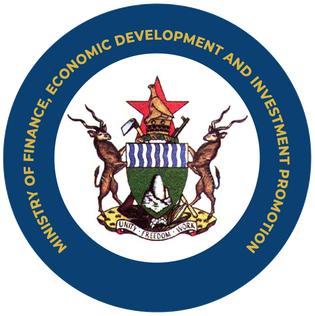
By Peter Makwanya
On April 23, the world commemorates the International Book and Copyright Day. This day is organised annually by the United Nations, Education, Scientific and Cultural Organisation to promote reading, publishing and copyright issues. This occasion is observed under the auspices of World Intellectual Property Organisation, annually on April 26, to raise awareness on how patents, copyrights, trademarks and designs, among others are commemorated. This year’s theme is Intellectual Property (IP) and the Youth, Innovation for a better Future.
Generally, intellectual property (IP) refers to any intellectual creation such as literary works, artistic works, symbols, designs, names and images, among others. These also include all things emanating from human mind such as, ideas, inventions, poems, books and computer codes, just to name a few. Intellectual property law exists in order to protect the originators and covers the areas of copyright, trademarks and patents, among others. In this regard, these commemorations, are not just to observe and celebrate, but also to remind intellectual shoplifters and plagiarism crews, to stop academic and intellectual theft, be it original, creative or innovative.
In short, all the intellectual property rights should be respected as people live in a world of counterfeits and copycats, who violate and infringe great works of others. Due to the diversity of the subject under discussion, this writer will not dwell on the Articles or Conventions of intellectual property, with their legal enactments, as I have to narrow this discussion towards the international book, copyright issues and thematic requirements situating the youths and reading at the centre of intellectual property requirements.
The International Book and Copyright Day sufficiently fits into the domain of literary, artistic, book, audio visual, paintings or photographic realism, just to name a few. It is also significant in this regard, to point out why the book and the youths are the focal points of this year’s theme. The book comes in as a sense of reawakening the world on aspects of writing and reading, fostering originality, creativity and innovation, in the face of the death of a reading culture. The youths are also the focal point as they are the future of the world, so they need to be caught young and correctly groomed, crafted and initiated into the reading and writing community of practice.
The youths are also under threat from the emergence and onslaught of new media technologies, in the form of internet, WhatsApp, Facebook, Twitter, video games or computer-driven music. Although these are essential in today’s technological and digital world, the youths need appropriate integration so that they do not lose focus hence they need to be cultured into the discourse of community of writing and reading, in order for them to fit into the giant footsteps of renowned writers and continue with the magnificent trade of writing. The envisaged writing should be, above all and everything else, real, original, creative and intrinsically driven.
It is against this background that the youths should see value in today’s problematic issues such as climate change, COVID-19 pandemic, secular economy and write about them, from a realistic point of view. The book is under threat of phasing out because the world now lacks quality thinking and writing. Due to widespread internet domains, the book is under threat from copycats and plagiarists who just want to mine from the internet and get away with it.
The concept of the book could not have come at a more opportune time than the current one because the world is faced with many existential threats to livelihoods like global warming, pandemics, plastic waste, fossil fuel burning and carbon emissions, energy poverty issues, shrinking forests, droughts, famine, among others. These problematic issues can only be understood and articulated well in writing and proper research. For this reason, the world needs a new breed of writers that are able to craft, package and publish climate change information that inspires and motivates reading from a variety of stakeholders.
- Chamisa under fire over US$120K donation
- Mavhunga puts DeMbare into Chibuku quarterfinals
- Pension funds bet on Cabora Bassa oilfields
- Councils defy govt fire tender directive
Keep Reading
The youths need to see value in tackling climate change issues through reading and writing, while integrating and mainstreaming climate change issues into the current new media technologies. The other issue is the time the youths spend surfing on the internet, WhatsApp, tik-toks, video games and movies which should be converted into value addition through practising reading and writing.
Although there is an emerging field of digital publishing which is internet based, it is everyone’s wish that problematic issues affecting the world need to be published on that domain as it is readily accessible to the youths.
It is also significant that the book should not always stay in its hard form hence it needs to transform into the digital form and catch up with the youths. The other way of promoting climate change readership, knowledge and information is the use of colourful visuals about the impacts of climate change on the digital platforms.
The sustainable future that we all want cannot be realised if the youths as a special group are not included in developmental paradigms. These people highly require the sustainable power of inclusive digital communication tools in order to transform their situations in a changing climate. Digital communication plays a key role in integrating the concept of climate change into the communities and helps them with the collective analysis of new challenges they face in their lives.
Digital communication is versatile and constitute the following pillars of text — audio, speech, music, visual, video, all adding to what is known as multimedia communication. Print communications (hard copy) require paper and printing facilities at higher costs while digital communication is sometimes cheaper, that is why the world is publishing books online. Digital communication is inclusive of the disadvantaged and vulnerable members of the community who live in marginal environments in countries that are always affected by impacts of climate change.
Whether on the online publications or print forms, intellectual property is very clear about respecting the legal rights of originators. These are legal rights which accrue from an activity in scientific, literary or artistic fields, which require permission or acknowledgement and attribution of the sources when using their works. Copy right law is the most abused legal instrument as many writers and potboilers, always bypass this law. As a result, the public and academic domains are not strict in observing and implementing copyright laws.
Book writing and reading are processes and not one-time events hence these two macro pillars and practices require discipline, patience and commitment in order not to violate other authors’ rights. Climate change community of practice exists as a new domain providing writers with opportunities to practise authorship and excite the world with new and relevant information so that it can relate to what is happening on the ground. Climate change literacy as a cross-cutting and interdisciplinary issue is failing to have the necessary uptake because of lack of writing and motivated readers.
For people to engage sustainably in climate change writing and discussions, they need to have strong background of knowledge gained through reading. Reading and writing transform the people’s worldview, critical interrogation and relationship with nature.
- Peter Makwanya is a climate change communicator. He writes in his personal capacity and can be contacted on: [email protected]











